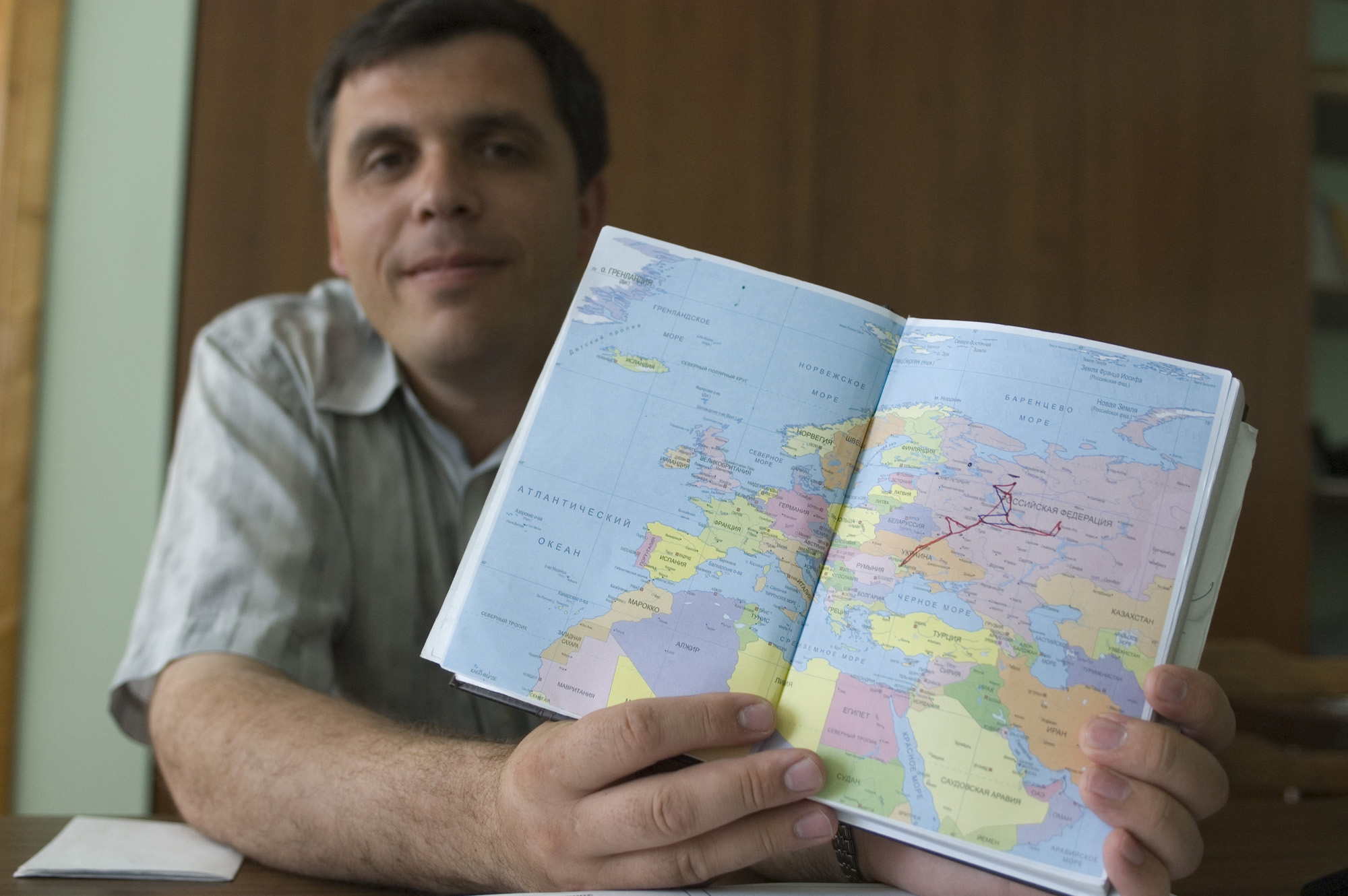
EDITORS’ NOTE: This year’s Week of Prayer for International Missions, Dec. 2-9, focuses on missionaries who serve in the former Soviet Union as well as churches partnering with them, exemplifying the global outreach supported by Southern Baptists’ gifts to the Lottie Moon Christmas Offering. Moldova is the focus of the 2007 International Mission Study prepared by Woman’s Missionary Union.
BALTI, Moldova (BP)–The blue hues of dusk reflect off the apartment walls where believers gather to pray. On bended knees, they form a semicircle around the coffee table, voicing the names of former neighbors who now live hours, and in some cases, days away.
But those positioned around the small table in Balti, Moldova, share a common church home with their former neighbors, no matter where they have settled. Since 1987, Bethany Baptist Church has sent nearly 80 members of its congregation to serve as missionaries throughout Moldova, Ukraine and Russia.
“There is a very big need [for the Gospel] in other parts of the former Soviet Union,” says Eugeni Munteanu, pastor of prayer at Bethany. “So the brothers here left their houses and their apartments to go over there to the desert.”
In 1997, Bethany children’s minister Andrey Malanciuc and missions pastor Vasiliy Sazikin began a prayer group of four families who met weekly to pray for missionaries sent out by their church. Today, the prayer group involves 13 families who regularly intercede for the missionaries.
Malanciuc believes prayer is foundational to Bethany Baptist’s missionaries.
“It’s kind of like an iceberg,” Malanciuc says. “You can’t see the largest part that is under the water. We don’t even know about most of the ministry of the missionaries, and we can’t always see the results of our prayers. But we believe and we pray. And we know that this ministry is held together by our prayers.”
Because of the poor economic conditions in their Eastern European nation, believers at Bethany are unable to support their missionaries financially. But rather than hindering the work of Moldovan missionaries, some would argue that Moldova’s economic crisis actually has spurred some believers to become missionaries themselves.
“There’s a tendency for those who don’t have jobs here to go to Russia to work,” Sazikin says. “So we encourage the families to go and serve as missionaries there. Just like the persecution of the Jerusalem church, the Lord uses the financial needs of the ministry for us to go out to different countries and serve.”
In addition to using economic hardship to call people to missions, Sazikin also believes God uses the shared Russian language of the former Soviet Union to give Moldovan believers access to the lost. By forcing Russian on Moldovans -– not necessarily a good thing -– the Soviet Union provided believers in Balti with a shared language to communicate more easily with the people of Russia.
Without a language barrier to deter their serving, several believers from Bethany moved their families to different parts of the former Soviet Union to serve as missionaries.
Only in the last year or two has the church begun encouraging those who go to Russia to work to take their families with them to minister, Sazikin says.
‘TOOL’ FOR THE GOSPEL
Because so many Moldovan households have at least one foreign income, Sazikin and his fellow pastors at Bethany saw this trend as a “tool” God would use to spread the Gospel.
“It’s one tool God uses,” Sazikin says, “but it’s not the main tool -– that is the people love God. The second is they know how to see the need.”
One way believers at Bethany see need is through the lives of missionaries who return to attend mission conferences. In 1997, Bethany hosted the first of three mission conferences with a twofold purpose: educating church members about sending missionaries across the former Soviet Union and allowing current missionaries to return for fellowship and encouragement.
After each mission conference, Bethany has seen five to seven families surrender to missionary service in parts of the former Soviet Union.
“God uses this conference to call people into missionary work,” Sazikin says, “and just looking at Moldova and Russia, it’s a lot like a desert, where we need people to sow.”
Because so many Bethany missionaries serve in areas where there is little, if any, Gospel witness, Malanciuc says it’s easy for them to become discouraged. So in addition to the mission conferences, each year Bethany sends two or three teams of 15-20 people to different areas of Russia, Moldova and Ukraine to encourage their missionaries and assist with evangelism.
For 10 days, teams travel in passenger vans, completing a 4,350-mile route to work with missionaries throughout the vast region.
Pavel Yatsko, a Bethany missionary serving in Ivanovo, Russia, said he was encouraged when 18 church members came to help with his ministry. After selling his business in Balti in 2000, Yatsko moved his family to Ivanovo, where less than 0.1 percent of the population professes to be believers.
While Yatsko is actively involved in evangelism in Ivanovo, he describes his work as a “slow, slow process.”
Yatsko admits he has, at times, questioned his calling because of the people’s lack of response to the Gospel message. But in spite of his discouragement, Yatsko says he will remain in Ivanovo as long as his service brings honor to the Lord.
“They have no hope of any kind of Gospel witness at all unless somebody takes it to them,” he says.
–30–
Kristen Hiller is a writer with the Southern Baptist International Mission Board. For more information on the Moldova mission study by Woman’s Missionary Union, go to www.wmu.com/molvdova.














